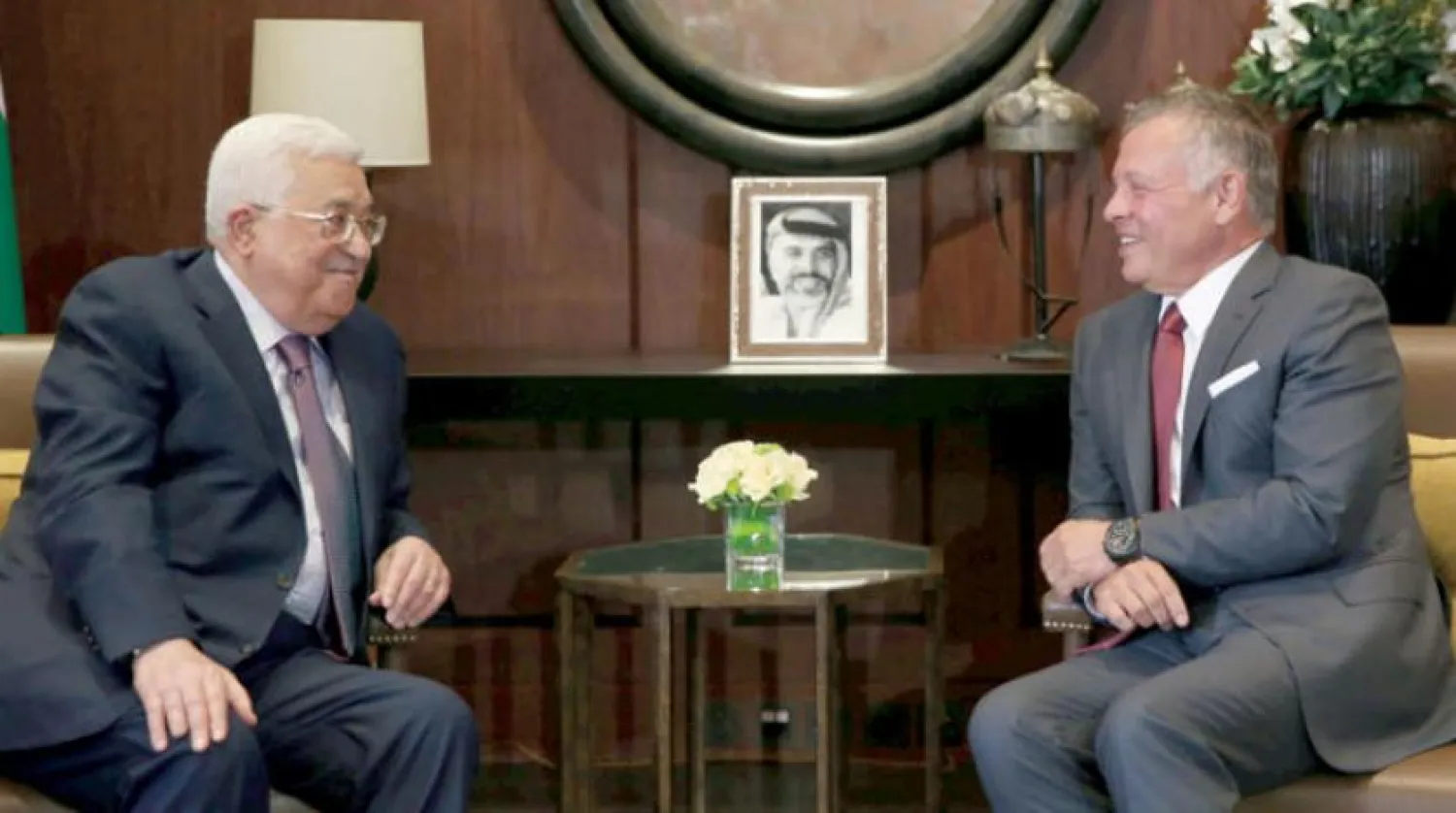Jordan’s King Abdullah II affirmed his country’s full support to the Palestinians’ legitimate and just rights.
The Jordanian monarch, during his meeting with Palestinian President Mahmoud Abbas and his accompanying delegation at the Husseiniya Palace in Amman on Wednesday, stressed that the Palestinian issue was at the core of the conflict in the region and a top priority of his country’s foreign policy, according to a statement by the Royal Jordanian Court.
He also underlined Jordan’s continued efforts in coordination with the various concerned parties, to re-launch negotiations between the Palestinians and the Israelis on the basis of the two-state solution, the Arab Peace Initiative and the resolutions of international legitimacy, with the aim to achieve the establishment of an independent Palestinian state with East Jerusalem as its capital.
In this context, King Abdullah pointed out that his recent meetings with the US president, administration and congressional committees have focused on Jordan’s steadfast position on the Palestinian issue, which affirmed that there could be no peace and stability in the region without a just and lasting solution to the Palestinian-Israeli conflict based on the two-state solution .
He also emphasized the importance of working with the US administration and the international community to find political horizons that serve Palestinian interests and the rights of the Palestinian people.
For his part, the Palestinian president expressed his appreciation for Jordan’s historical and steadfast positions on the Palestinian cause, praising the great efforts made by King Abdullah II in defending the rights of the Palestinian people in all international forums.
Addressing journalists following the meeting, Abbas said that his discussions with the Jordanian monarch came within the framework of ongoing coordination between the two sides on latest developments in the Palestinian issue and means to develop bilateral relations.
He noted that a meeting would be held within few days between the prime ministers of the two countries to discuss economic and social issues.









